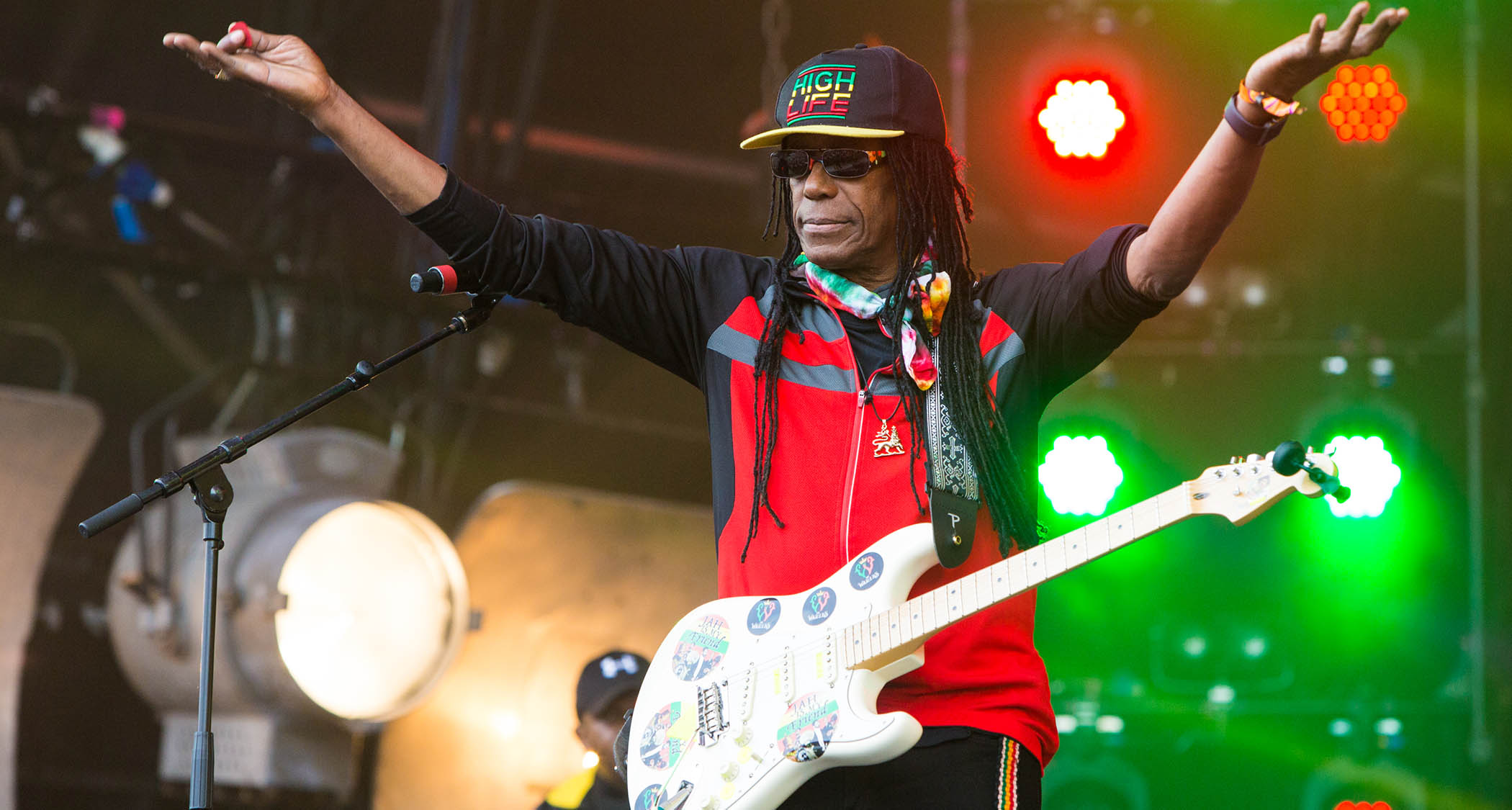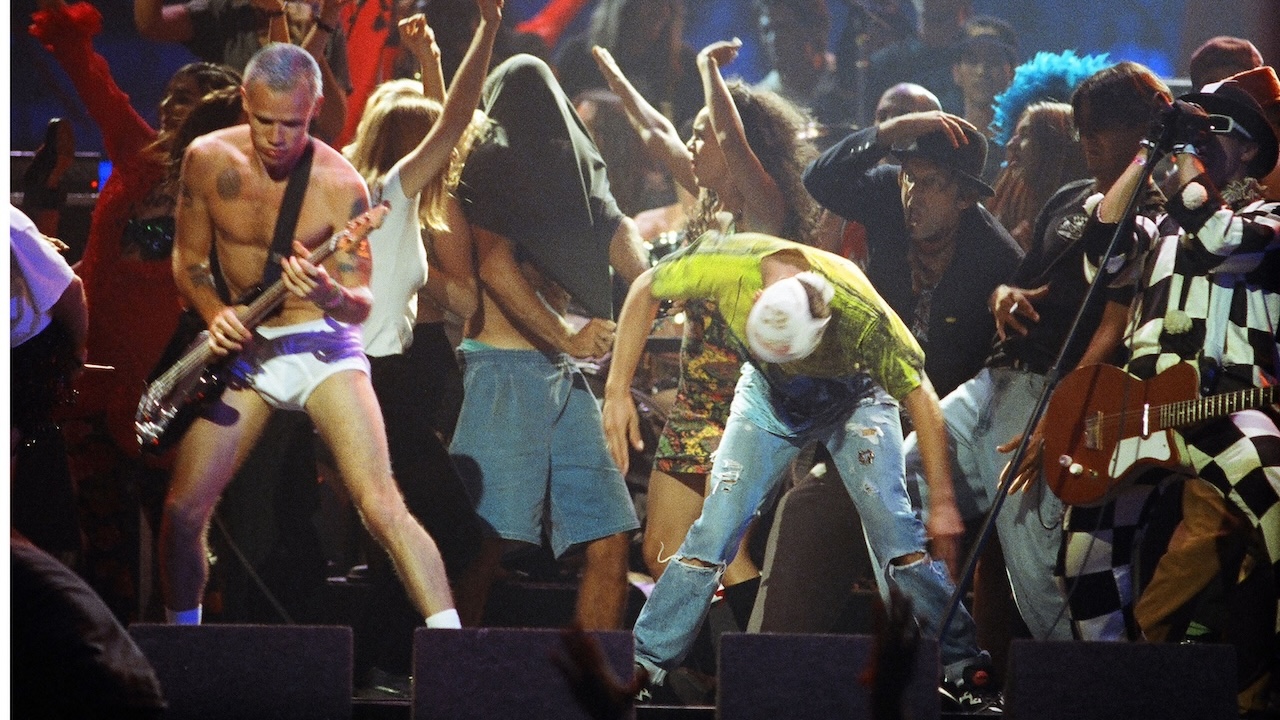“People shied away from its political edge – they didn’t get their love songs. But for us it was a lot of fun”: Junior Marvin on Bob Marley and the Wailers’ Survival – and the influence Hendrix’s guitar pedal guru had on its sound
After the success of Exodus and Kaya, Bob Marley took the Wailers into a more politically charged direction to deliver a slept-on classic in the Wailers’ discography

All the latest guitar news, interviews, lessons, reviews, deals and more, direct to your inbox!
You are now subscribed
Your newsletter sign-up was successful
After a session career that included credits with Keef Hartley, Toots & the Maytals and Steve Winwood (along with an appearance in the Beatles’ Help! movie as a child actor), by the late ’70s, Junior Marvin established himself as a noteworthy go-to player with a distinct Jimi Hendrix-meets-reggae edge.
That served him well, as after hooking up with Bob Marley in early 1977 as a replacement for Al Anderson, Marvin immediately played lead guitar across Marley’s iconic 1977 album, Exodus. That record and its follow-up, 1978’s uber-chill Kaya, are widely regarded as two of the greatest reggae albums of all time, but Marley’s next album – 1979’s Survival – is overlooked by drive-by fans.
That’s probably because Marley was reeling after an attempt on his life in 1976 and because critics labeled his music “too laidback” post-Exodus. So Survival was an aptly titled, outwardly militant and hyper-politically charged record that alienated fans who had previously cozied up to the supposed peace-and-love vibes of Kaya.
Survival didn’t sell like Exodus and Kaya – but according to Junior Marvin, that doesn’t matter. “It’ll always be there,” he says. “I think it’s one of Bob’s greatest records. With the actual guitar playing and everything, I think we were very competitive worldwide.”
Another notable change for Survival was the return of Anderson, who Marvin had replaced. Reportedly, Anderson and Marvin didn’t get along in the ’70s and don’t exactly like each other now. Marvin sidesteps this, saying, “Our sound, the engineering and our personal playing as a team was about playing in a pocket.”
“We played in time,” he adds. “We had a metronomic concept. But it was also about being together; we never went off in one direction and were always together as a band. It was a tight kind of sound. That’s the one thing the Wailers were known for: being pretty tight and aware of each other when we were playing. It was always fun.”
The songs were more like medicine or message-type songs rather than love songs
Given the militant nature of Survival, what was the vibe within Bob’s camp going into its recording?
All the latest guitar news, interviews, lessons, reviews, deals and more, direct to your inbox!
“That was more Bob’s concept rather than the band, you know? He survived an attack on his life, he was traveling, he was working – but he was upset. He came to terms with it and made it more positive, but the songs were more like medicine or message-type songs rather than love songs.”
Did your mindset change to fit Bob’s concept as far as guitars?
“We took it one track at a time. We did it very organically. We rehearsed a lot and got the vibe rather than going in and playing off the cuff. We worked on it a lot; we knew the songs before we went into the studio – and we had a great engineer [Alex Sadkin]. I was just honored to be a part of that.”
Notably, Al Anderson – who you’d replaced previously – rejoined Bob’s band. The credits don’t show who played on what, so what was the approach to sharing space?
“We weren’t really sharing space because we were trying to complement each other. It was more about complementing the song rather than me versus another guitar player. It was more of a collaboration of ideas, parts, sounds and all the technical elements that make a good album. It wasn’t just about who was playing at what given time but more about the end product. It was very special.”
Since the credits are murky on Survival, can you call out the differences between your playing and Al’s playing?
“I don’t think it was any particular record that had an influence on me and how we played together. It was just more that we were working within a band. Some songs needed a live feel, you know? And there was more than one [guitar] part [on each song], so rather than do a lot of overdubs, we would organically play together. That gave it a more intimate feel. That was the idea behind how we recorded the guitars for Survival.”
Is there a song from Survival that you found most memorable from a guitar perspective?
“When you play the songs, they all become favorites! It’s hard to single out one song… well, sometimes you can, but I don’t know… I never really got that vibe. It was just all the songs… like Exodus, Kaya and Uprising; Survival was just another album and another concept. Politically and worldwide, [the idea of] survival was a big issue – and still is.
What do you remember about putting together Zimbabwe?
“Bob was influenced by the fact that he went to Africa. He went to Ethiopia and met some soldiers along the way; I think he was writing the song, and they witnessed part of it and gave him the thumbs up to do something like that [song]. And then he got invited to Zimbabwe, and that song just kind of universally and organically came together.”
What gear did you use on that track?
“We’d primarily been using [Fender] Twin Reverb amps, and I think I had a Gibson [Les Paul] and a Fender Stratocaster. Sometimes we’d use other amps, but I think I mainly stuck to what we knew. The response it gave from the instruments was great, and the engineers seemed to be very happy with it. So we never went to get a Marshall; we basically stuck with Fender.”
Do you remember recording the guitars for One Drop?
“That was a very interesting song to record. It had a bassline and a guitar line that kind of went together, you know? It was kind of jazzy… It just had this kind of shuffle and feel that was reggae but also like a train coming at you. [Laughs] So that’s how I approached it.”
Bob was mainly playing rhythm. Sometimes Bob would sing along to the song while we’d record drums, bass and piano with a bit of guitar
We talked about Al, but how did Bob’s guitar playing fit into the mix?
“Bob was mainly playing rhythm. Sometimes Bob would sing along to the song while we’d record drums, bass and piano with a bit of guitar. Sometimes I wouldn’t play on a song; I couldn’t even go back and say, ‘Well, I did play on that song,’ or ‘I didn’t play on that.’ You weren’t involved in every song because sometimes they didn’t need a lot of guitar parts in songs.
“But with others, all of us would actually play together, and the separation was pretty good. And if we didn’t like it, we could always do it again, or if we did, we’d do it one take, maybe go back and study it and do it again. The most organic recording was done at times when you could get three, four or five of us playing at the same.”
You worked with Roger Mayer – engineer and creator of the Octavia fuzz pedal – a lot on Exodus. Roger isn’t listed in the credits, but did he impact your tone on Survival?
“I’d worked a lot with Roger Mayer, who had worked with Jimi Hendrix, Stevie Wonder, the Rolling Stones, Led Zeppelin and people like that. I got a lot of those fuzz tones from the Octavia. Roger was really instrumental to the sound of the Wailers on Exodus, Kaya and Survival.”
How so?
“He helped us make sure we were in tune with the keyboards. Electronic keyboards were coming out then, and he wanted to make sure that the band was always in tune – especially for the sound of the records. And having a great engineer [and producer] like Alex Sadkin really helped with that too. The way we recorded and the techniques they used were really ahead of their time.”
Coming off the massive success of Exodus and Kaya, one would’ve expected Survival to be huge – but it fell a bit short. Why do you think it remains under the radar?
“Some people like to shy away from the militant kind of style. Some people would rather listen to Stir It Up, One Love or Three Little Birds. [Laughs] The concept was a little bit different; it was a little less forgiving. It was also about making amends, trying to push forward, using positive energy and going in that direction.
“But there was some political edge to it, and some people shy away from that. They didn't get their usual love songs. Some people would call it a bit militant, but for us, it was a lot of fun.”
- Survival is out now via Tuff Gong.
- This article first appeared in Guitar World. Subscribe and save.
Andrew Daly is an iced-coffee-addicted, oddball Telecaster-playing, alfredo pasta-loving journalist from Long Island, NY, who, in addition to being a contributing writer for Guitar World, scribes for Bass Player, Guitar Player, Guitarist, and MusicRadar. Andrew has interviewed favorites like Ace Frehley, Johnny Marr, Vito Bratta, Bruce Kulick, Joe Perry, Brad Whitford, Tom Morello, Rich Robinson, and Paul Stanley, while his all-time favorite (rhythm player), Keith Richards, continues to elude him.
You must confirm your public display name before commenting
Please logout and then login again, you will then be prompted to enter your display name.





